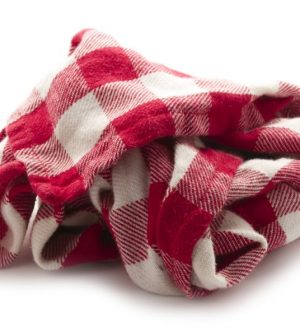- Could Your Grocery Store Meat Be Causing Recurring UTIs?
- Are You Making This Expensive Thermostat Error This Winter?
- Recognizing the Signs of Hypothyroidism
- 10 Strategies to Overcome Insomnia
- Could Artificial Sweeteners Be Aging the Brain Faster?
- Techniques for Soothing Your Nervous System
- Does the Water in Your House Smell Funny? Here’s Why
- Can a Daily Dose of Apple Cider Vinegar Actually Aid Weight Loss?
- 6 Health Beverages That Can Actually Spike Your Blood Sugar
- Treatment Options for Social Anxiety Disorder
Kitchen Towels Laden With Bacteria

Is your kitchen towel making you sick?
The answer could be yes if you use the towel for many purposes, have a large family and are not a vegetarian, according to a new study of germs lurking on towels.
Forty-nine percent of the kitchen towels collected for the study were laden with bacteria, and the bacterial count increased with the number of family members and kids, researchers from the Indian Ocean island/nation of Mauritius reported.
“Cross-contamination is happening in the kitchen, and those bacteria could reach our food and cause food poisoning,” said lead researcher Susheela Biranjia-Hurdoyal. She is a senior lecturer in the department of health at the University of Mauritius.
Specifically, the researchers found that towels used for a variety of tasks — such as wiping utensils, drying hands, holding hot utensils or cleaning surfaces — had more bacteria than towels used for one task. In addition, damp towels had more bacteria than dry ones, the investigators found.
Of the 49 samples that were infested with bacteria, 37 percent had Escherichia coli (E. coli), 37 percent had Enterococcus, and 14 percent were infected with Staphylococcus aureus (S. aureus).
For the study, Biranjia-Hurdoyal and her colleagues sampled 100 kitchen towels that had been used for one month. They classified the types of bacteria on the towels and also how much bacteria was present.
Higher rates of S. aureus were found among low-income families and those with children, the findings showed. The risk for E. coli was higher in damp towels than dry ones, from towels used for several jobs rather than single-use ones, and from those used in non-vegetarian households.
Both E. coli and S. aureus were found at higher rates in families with non-vegetarian diets.
E. coli is a normal bacteria found in the intestine and is released in large numbers in human feces. S. aureus is a bacteria found in the respiratory tract.
The researchers’ advice? “Avoid humid and multi-usage towels,” Biranjia-Hurdoyal suggested.
Kevin Sauer is an associate professor of dietetics at Kansas State University College of Human Ecology in Manhattan, Kansas. He said, “The key advice is to remain attentive to food safety when preparing food in the home, which includes proper hand-washing, avoiding cross-contamination, and cooking and storing foods at the right temperatures.”
In a food-handling study he did in 2015, Sauer found that cloth towels were the most contaminated.
“However, even when provided with disposable single-use paper towels, participants were still observed using these in a way that led to additional contamination of contact surfaces,” he noted.
Sauer advised that people should avoid using towels in place of hand-washing, because they can easily become contaminated with harmful germs from raw meat and poultry juices.
“Furthermore, reusing contaminated towels to wipe hands or other surfaces can easily lead to cross-contamination, and therefore should not be reused throughout meal preparation, since they too can contribute to contamination of hands, surfaces or other food products,” Sauer said.
Findings from the study were scheduled for presentation Saturday at the American Society for Microbiology meeting, in Atlanta. The findings should be considered preliminary because they have not yet been published in a peer-reviewed medical journal.
More information
For more on kitchen safety, visit the U.S. Department of Health and Human Services.
Source: HealthDay
Copyright © 2026 HealthDay. All rights reserved.










